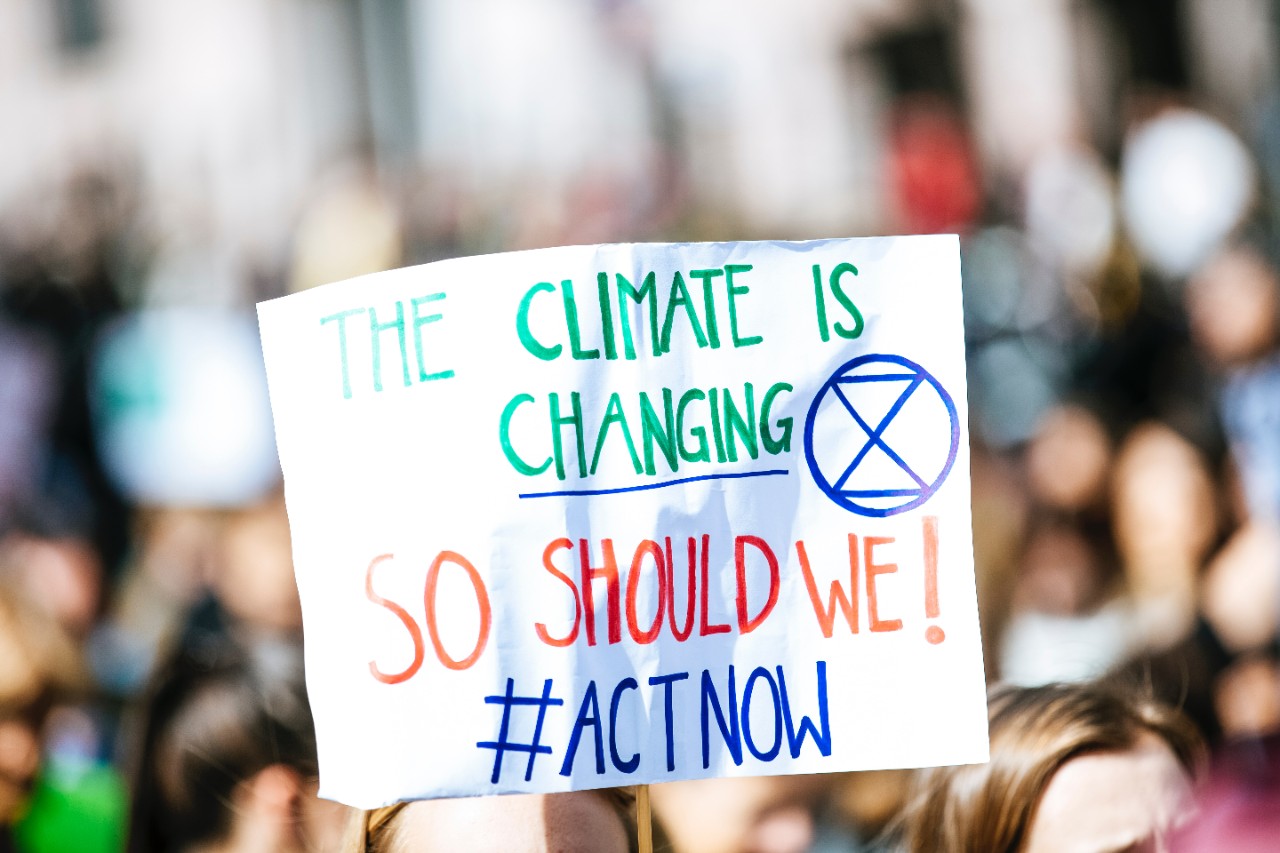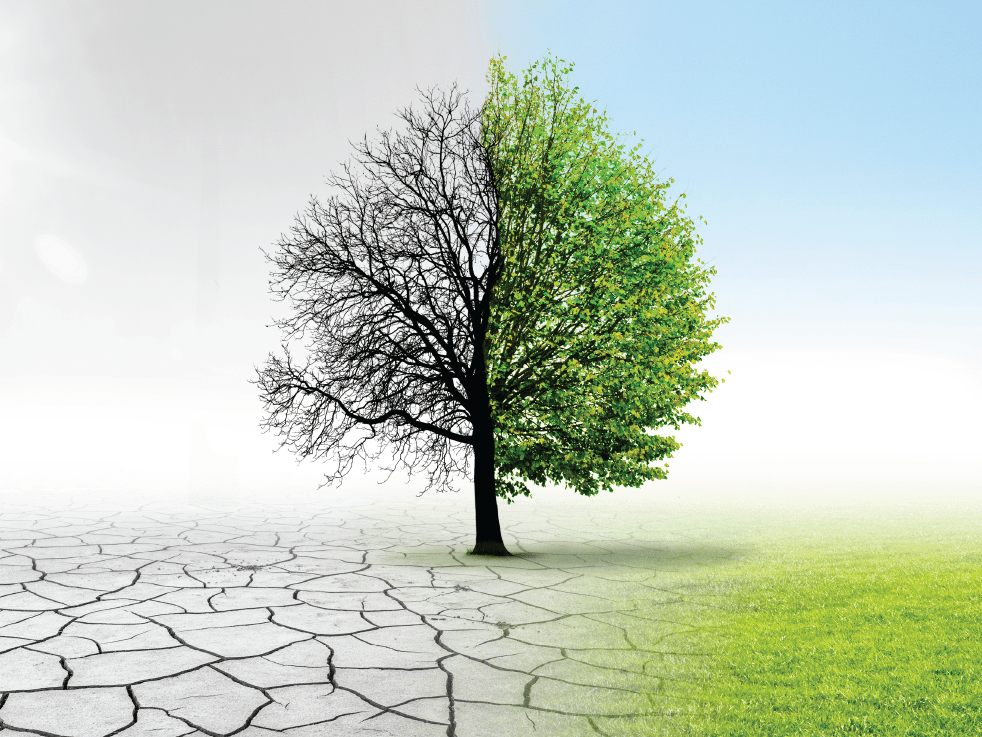
Global climate change has serious implications for all living things on Earth. Scientists have examined the many impacts of this phenomenon in many ways. These impacts include changes in weather patterns and the loss of biological diversity. It is crucial that governments take action to limit the negative effects of this trend.

To provide a complete picture of the state-of-the-art global research on climate, a bibliometric investigation was done. It compares the scientific outputs of different countries and regions to determine which aspects are most important. A database of 40,062 articles about climate change was used to evaluate this data. These articles were extracted from the World of Science database. The comprehensive assessment of the current state of the art was possible through the analysis of publications that were based on technological, ecological, and socioeconomic factors.
Scientists have discovered that the ocean's heat content has increased dramatically over the last few decades. The Arctic is heating up twice as fast than the rest of the globe. The result is that sea levels are rising quickly. As a result, the world's largest cities and coastal ecosystems are the most vulnerable to the adverse effects of the change.
Scientists have examined a variety of factors that influence the Earth's energy balance. However, scientists also use sophisticated models to predict the future climate. These models show that the developing world faces a huge burden from climate impacts. These models do not accurately reflect what has happened. Research is therefore centered on reliable estimates of the effects of climate change.
Although there are many scientific evidences to support global warming it is difficult to estimate the effect. A reliable estimate of the impacts of climate change will form the basis of all mitigation strategies. Global Climate Risk Index, which provides data over the severity of weather-related events over different years, is used to help determine the impact of climate change.

The rate at which greenhouse gases concentrations are increasing is another indicator of global climate changes. Research shows that the rate of increase has been unprecedented over the last century. This is because human activities have increased the amount of CO2 in the atmosphere. Therefore, these gases trap more of the Sun's heat. Research has shown that the rate of warming in the past century was 10 times faster then the rate of warming in the last decade.
Melting ice sheets and rising heat in the ocean are two other signs that the earth's surface is changing rapidly. These changes could have devastating consequences for human life, including our food supply and water supply. Furthermore, there are already signs that the rate of extreme weather events will increase as a result of climate change. Despite the many indications of changing climate, governments have yet to take any meaningful action to mitigate its effects.
FAQ
Is there any potential for new technologies that address climate change?
New technologies have the potential to solve this global challenge. Advances in applied science make it possible to move to a more sustainable future.
To reduce greenhouse gas emissions, new methods of carbon capture can be used. Enhanced agricultural practices can also help to reduce the amount of livestock and soil degradation. Smart grid technology can be integrated with existing power infrastructures to improve efficiency. Enhanced building design can help reduce energy consumption.
A new generation of synthetic biology techniques allows scientists to develop organisms capable of converting green fuels such as the CO2 laser into biofuel or other feedstock. This could revolutionize transportation if the market turns away from petrol-based vehicles toward zero-emission electric cars powered by clean sources.
Finally, increased investments in digital technology or AI can provide people with more information on their ecological footprints across borders. This will allow them to make more informed decisions regarding their consumption habits. Understanding how we contribute to the carbon production of our planet is key for better stewardship.
What impact does politics have on global efforts to tackle climate change?
Climate change is a highly politicized issue that has created a great deal of division among nations, governments, and individuals. Politicians of many actors influence the implementation of actions to address climate change. It has become increasingly difficult to come to an agreement on how to address this urgent environmental crisis globally.
Most scientists agree that humans are causing climate change. This is why it is urgent to act. Politics surrounding these issues can often hinder global cooperation, which is required to make effective progress in implementing sustainability energy practices and upholding regulations protecting natural environments, researching viable technological options, and other climate-change interventions.
Many governments around the globe want to protect business interests and enforce policies that restrict business activities. This often clashes with regulations that experts recommend for effectively addressing climate change. Without strong commitments by all countries involved and large-scale international action it is difficult for any state or group to adequately address climate changes through legislation.
The difficulty of reaching a full consensus about the best way to combat climate change is further complicated by differences in power dynamics. Countries with more economic power may appoint themselves to be represented on international bodies for negotiations about the environment. This can lead the to divisive discussions between the countries' interests and the collective interest. In addition, potential side effects from implementing radical changes such as geoengineering have been debated heavily at both national and international levels.
Also at the grassroots level, grassroots movements have fought against powerful opponents such as corporate ownerships. These lobbies are trying to preserve politically favorable positions for their industry especially when it is about funding research into alternative sources of energy production or enforcing Renewable Energy Technology mandates. If individual governments want to make valid progress in the subject matter themselves instead of seeking short-term benefits or spectacles, they must be clearheaded about possible outcomes.
A coordinated effort to reduce our environmental crisis will only succeed if resources are distributed properly and there is no political divide between nations.
How does climate change affect the world's oceans and marine life?
What are the impacts of climate changes on the oceans, and marine life worldwide?
Since its inception, climate change has had a significant impact on the oceans and marine life of the world. The depletion of the ozone layer, which causes constant oceanic warming, has caused major disruptions to marine ecosystems. This has led to coral bleaching and a decline in species.
Climate change is also responsible for unpredictable weather patterns and stronger storms, which can lead to dangerously high sea levels. Additionally, temperature changes may cause water systems to lose oxygen. This can result in "dead areas" in which abundant marine life is reduced.
Ocean acidification can also be caused by climate change. Excess carbon dioxide is released into the atmosphere and accumulates in the oceans. Ocean acidification increases pH, which can disrupt the essential functions of animals that are unable to adapt, such as crabs, oysters, clams and crabs.
Higher temperatures can also cause changes in natural habitats. They may shrink or change their geographical location, making it unhabitable for species that depend on them. This increase in ocean stress accelerates already high extinction rates amongst many species worldwide causing a severe imbalance between predators and prey that might eventually lead to complete extinctions.
The effects of climate change ripple throughout entire ecosystems influencing multiple species whether directly or indirectly through evaporation lowering water volumes or sharp temperature shifts jeopardizing any sustainable development for fisheries and other maritime activities. The effects of climate change continue to impact the lives of entire species on this planet.
What is the climate change's impact on ecosystems and biodiversity?
Climate change has a range of impacts on biodiversity and ecosystems. Climate change is affecting ecosystems and wildlife today.
Changes to climate conditions can have drastic consequences for biodiversity and the functioning ecosystems. Changes in the hydrological cycle can also affect water availability for aquatic species.
Moreover, changes to climate result in rising temperatures and more frequent extremes such as droughts and floods which puts more stress on already fragile systems such as coral reefs or tropical rainforests. The climate change will lead to the extermination or decline of as many as 30% of animal species in 2050. This could cause further destruction of ecological communities.
Climate change is an enormous threat to biodiversity and to human societies which depend on functioning ecosystems. At all levels, efforts should be made to decrease global warming trends. Future damage should be avoided if possible through careful management.
Statistics
- According to the 2014 report on Climate Change Impacts, Adaptation, and Vulnerability (page 8) from the United Nations Intergovernmental Panel on Climate Change, governments at various levels are also getting better at adaptation. (climate.nasa.gov)
- The 100 least-emitting countries generate 3 per cent of total emissions. (un.org)
- This source accounts for about 10% of all the water that enters this highly productive farmland, including rivers and rain. (climate.nasa.gov)
- This source accounts for about 10% of all the water that enters this highly productive farmland, including rivers and rain. (climate.nasa.gov)
- Fossil fuel production must decline by roughly 6 percent per year between 2020 and 2030. (un.org)
External Links
How To
How to Educate Your Community About Climate Change and Mobilize Action
You can learn about climate change through many different methods, from interactive online tools and educational resources to classroom activities and simulations to experiential learning programs and classroom activities. The following key elements are essential for effective climate change education
-
The goal is to provide practical knowledge and skills for the people who are interested in this subject.
-
Showing how individuals can make an impact
-
Participating in an open dialogue regarding potential solutions
-
Shared experiences inspire action
Teachers will be able help their communities reduce their environmental footprint by providing comprehensive lessons on climate change for students and adults.
Connecting scientific research and real-world examples creates a unique opportunity to engage audiences in a meaningful discussion. Exploring case studies and best practices also provides participants with opportunities to witness positive outcomes firsthand, which can inspire further innovation or replicable measures within their own communities or organizations.
Participants are empowered by incorporating action-oriented activities in educational curriculums. This gives them the mental tools needed to create campaigns, petitions, and take local actions. It also allows them to be agents for social and political change or sustainability improvement initiatives. Individual agency is important because it highlights the importance to reduce emissions. Participants can also be shown how they contribute collectively towards a better outcome. Stakeholders should be included early in policy-making, which encourages participation at all stages. This will result in equitable outcomes for all parties. By combining our efforts to raise public awareness about the impact of climate change with appropriate actions to mitigate greenhouse gas emissions, we may be able create an environment in which these urgent matters are addressed with special attention where it is most needed. This will allow us to work together to implement successful measures that will help us achieve our collective goals.